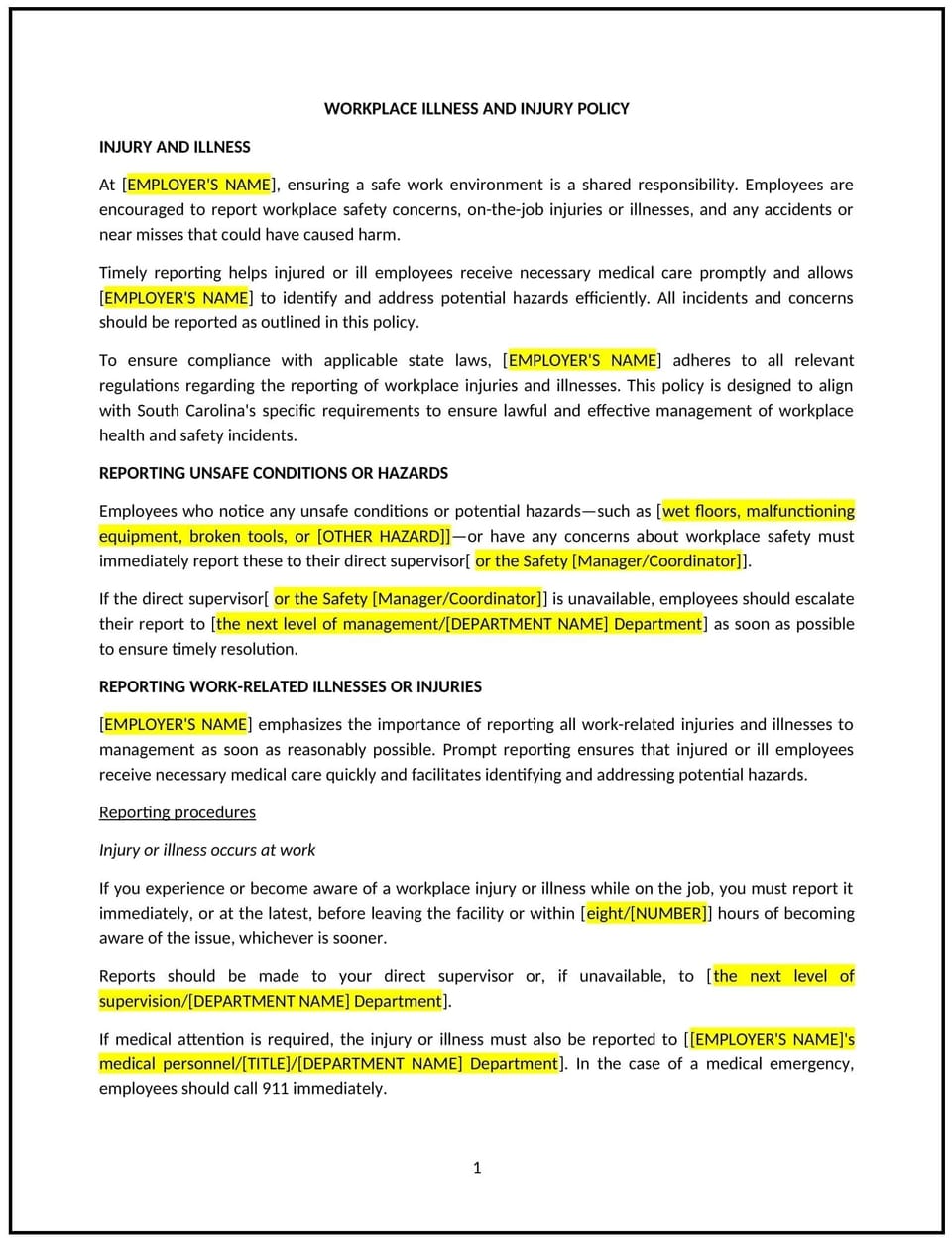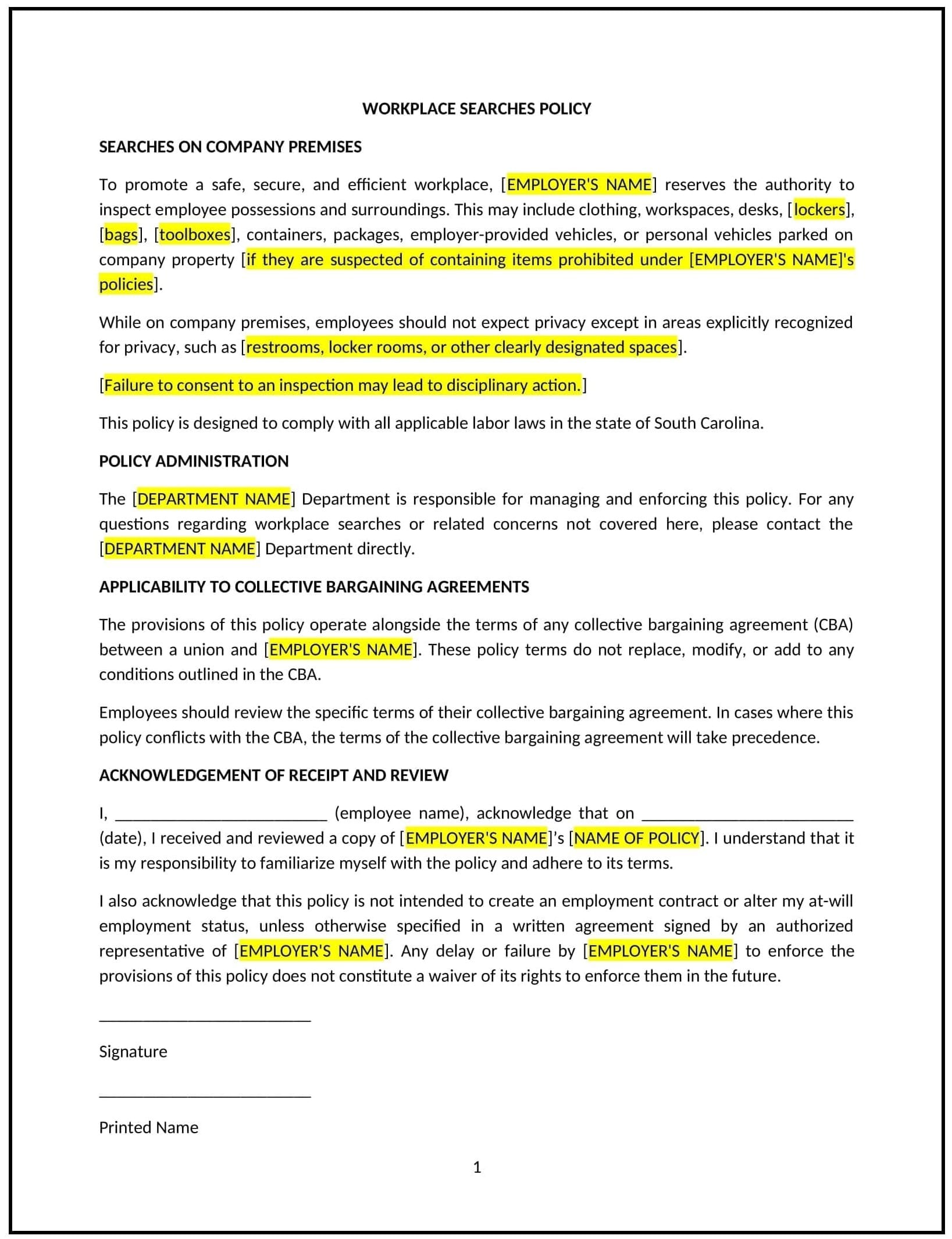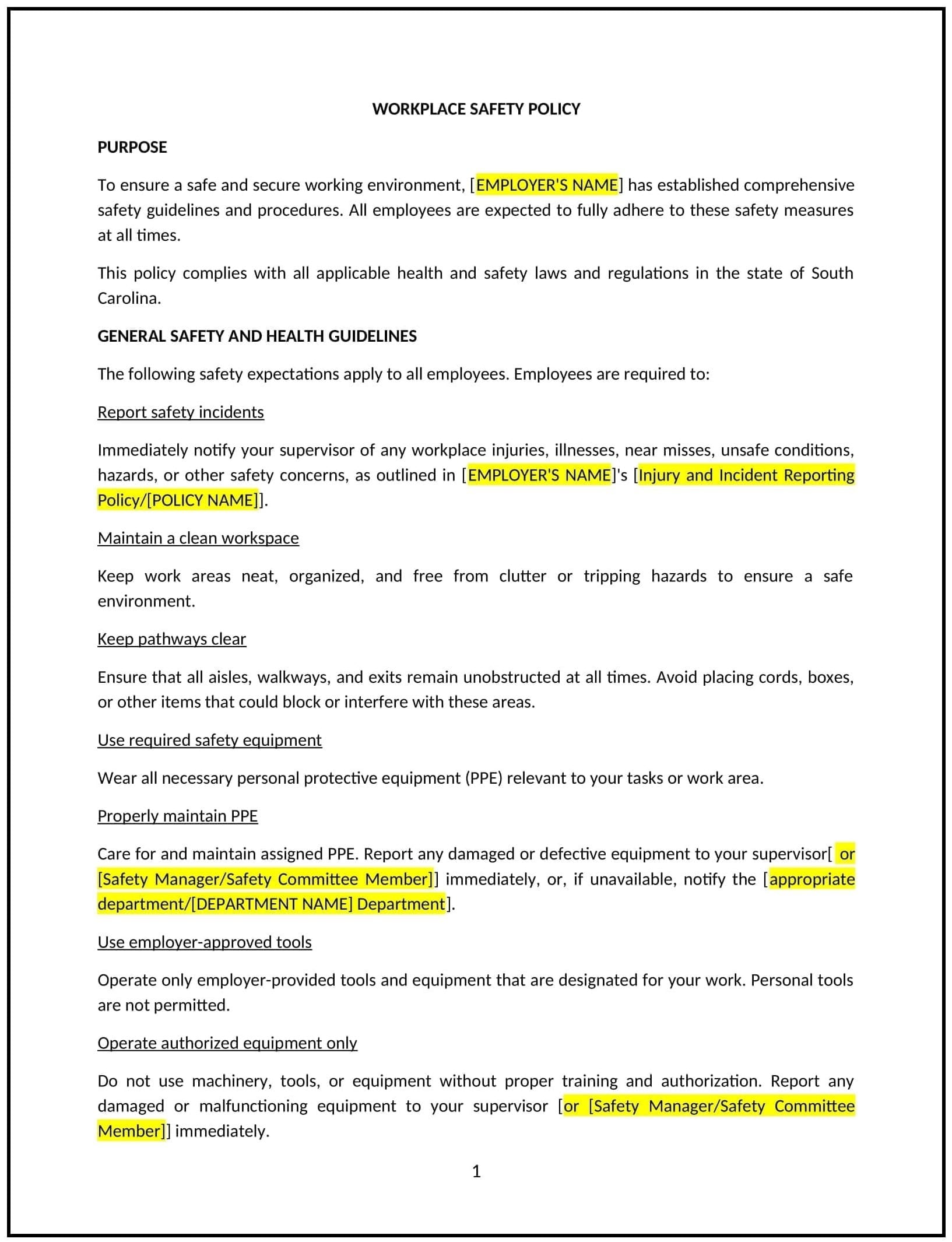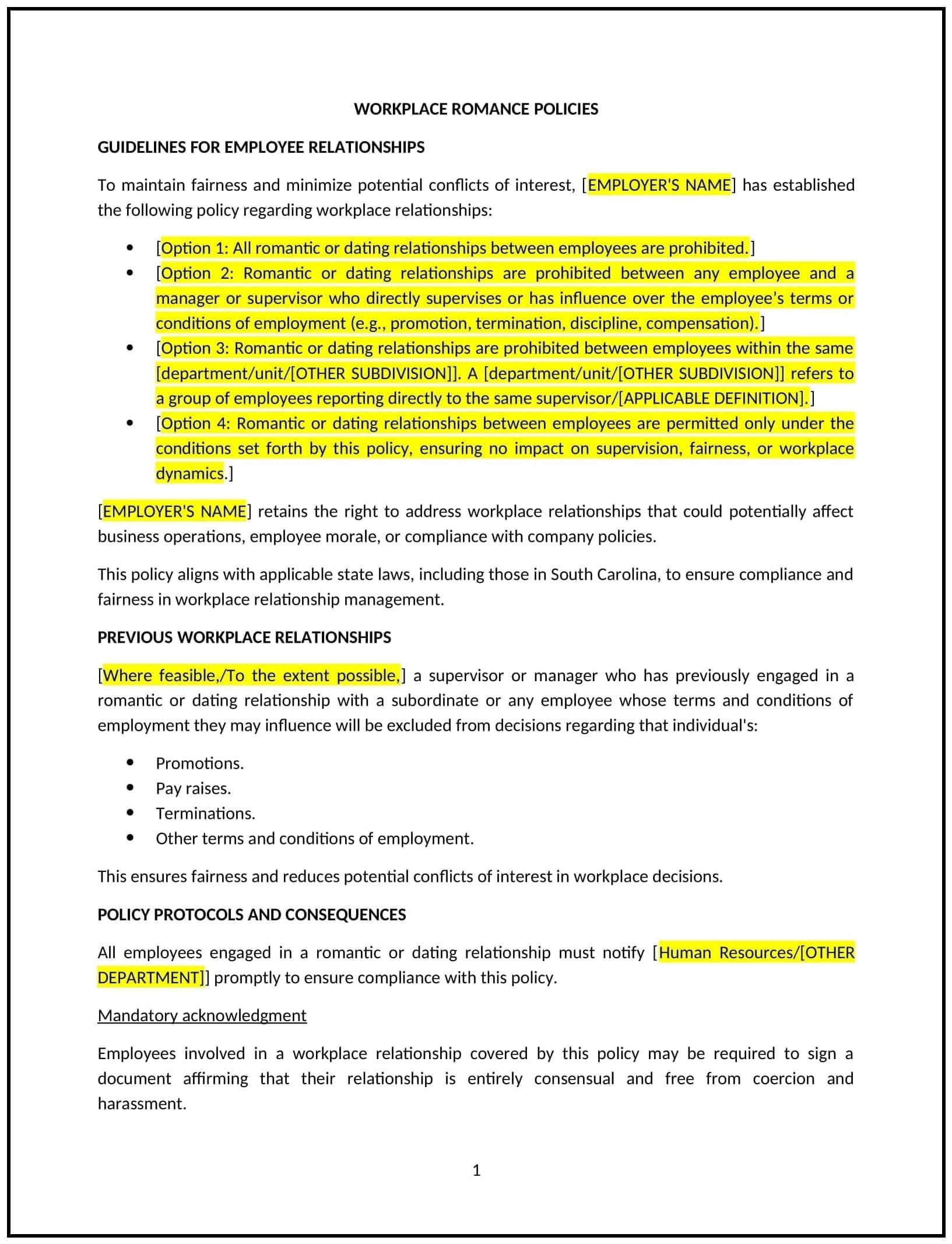Workplace illness and injury policy (South Carolina): Free template

Workplace illness and injury policy (South Carolina)
This workplace illness and injury policy is designed to help South Carolina businesses establish guidelines for addressing employee illnesses and injuries that occur in the workplace. It outlines procedures for reporting incidents, providing medical support, and maintaining compliance with workers’ compensation laws.
By adopting this policy, businesses can ensure employee safety, reduce risks, and align with general best practices for workplace health and safety.
How to use this workplace illness and injury policy (South Carolina)
- Define workplace illnesses and injuries: Explain what constitutes a workplace illness or injury, such as accidents, exposure to hazardous materials, or repetitive strain injuries.
- Establish reporting procedures: Provide steps for employees to report illnesses or injuries, including required documentation and timelines.
- Address medical support: Outline the process for providing medical assistance, such as first aid or referrals to healthcare providers.
- Set workers’ compensation procedures: Specify how employees can file workers’ compensation claims and what support the business will provide.
- Train employees: Educate staff on their responsibilities for reporting illnesses and injuries and maintaining a safe workplace.
- Review and update: Assess the policy annually to ensure it aligns with evolving business needs and health and safety standards.
Benefits of using this workplace illness and injury policy (South Carolina)
This policy offers several advantages for South Carolina businesses:
- Ensures employee safety: Provides clear guidelines for addressing workplace illnesses and injuries promptly and effectively.
- Reduces risks: Minimizes the potential for accidents, injuries, or legal disputes related to workplace health and safety.
- Aligns with best practices: Offers a structured approach to managing workplace illnesses and injuries.
- Builds trust: Demonstrates a commitment to employee well-being and workplace safety.
- Enhances productivity: Creates a work environment where employees feel safe and supported.
Tips for using this workplace illness and injury policy (South Carolina)
- Communicate the policy: Share the policy with employees and include it in the employee handbook.
- Provide training: Educate staff on their responsibilities for reporting illnesses and injuries and maintaining a safe workplace.
- Monitor adherence: Regularly review incident reports and safety practices to ensure compliance with the policy.
- Address issues promptly: Take corrective action if illnesses or injuries are not reported or addressed properly.
- Update regularly: Assess the policy annually to ensure it aligns with evolving business needs and health and safety standards.
Q: How does this policy benefit businesses?
A: This policy ensures employee safety, reduces risks, and aligns with best practices by providing clear guidelines for addressing workplace illnesses and injuries.
Q: What types of illnesses and injuries are typically covered under this policy?
A: Illnesses and injuries may include accidents, exposure to hazardous materials, repetitive strain injuries, or work-related illnesses.
Q: How can employees report workplace illnesses or injuries?
A: Employees should follow the reporting procedures outlined in the policy, including providing required documentation and notifying their supervisor.
Q: What should businesses do if a workplace illness or injury occurs?
A: Businesses should provide immediate medical support, investigate the incident, and assist with workers’ compensation claims if applicable.
Q: How often should businesses review this policy?
A: Businesses should review the policy annually or as needed to ensure it aligns with evolving business needs and health and safety standards.
This article contains general legal information and does not contain legal advice. Cobrief is not a law firm or a substitute for an attorney or law firm. The law is complex and changes often. For legal advice, please ask a lawyer.


